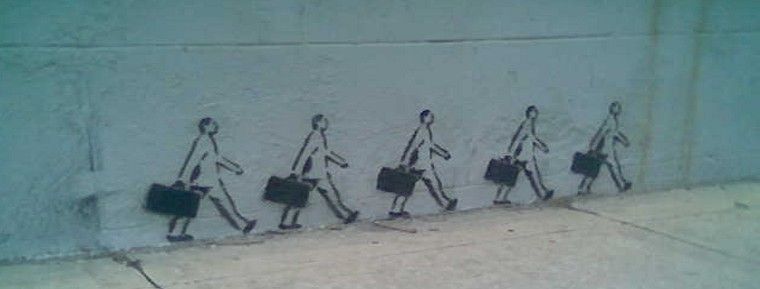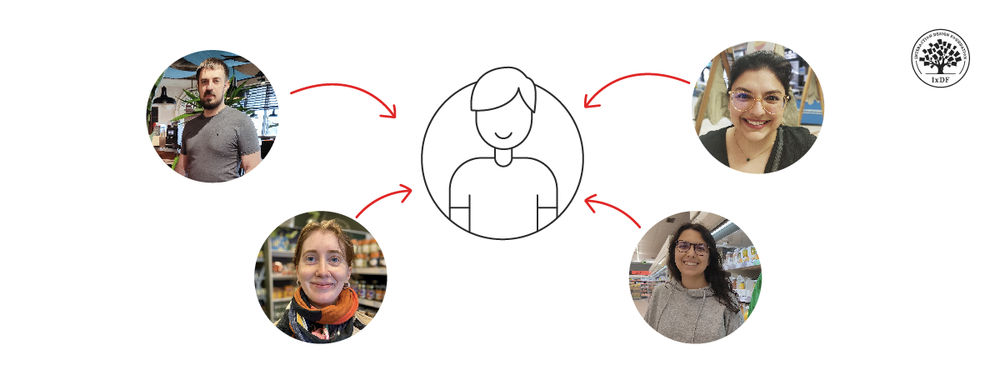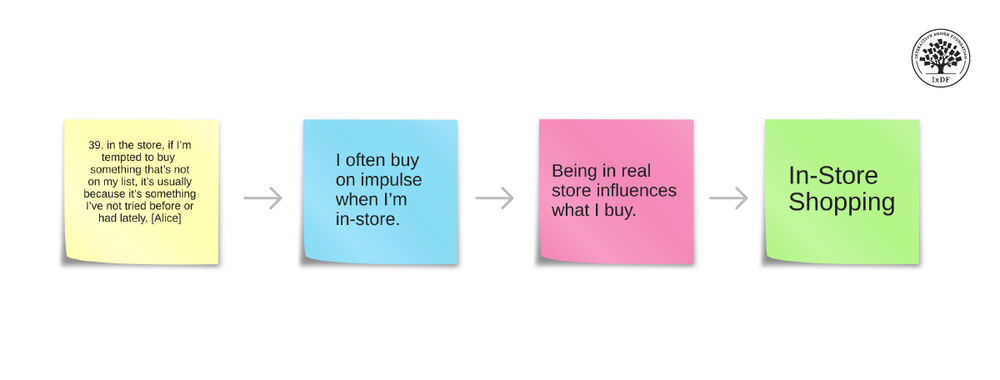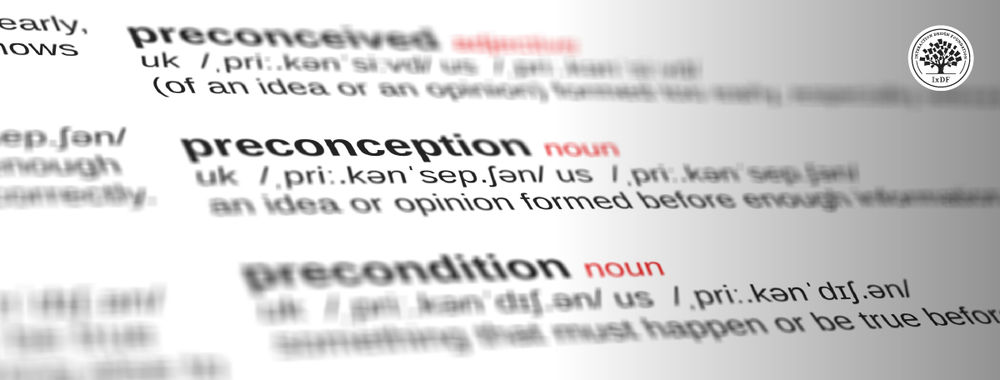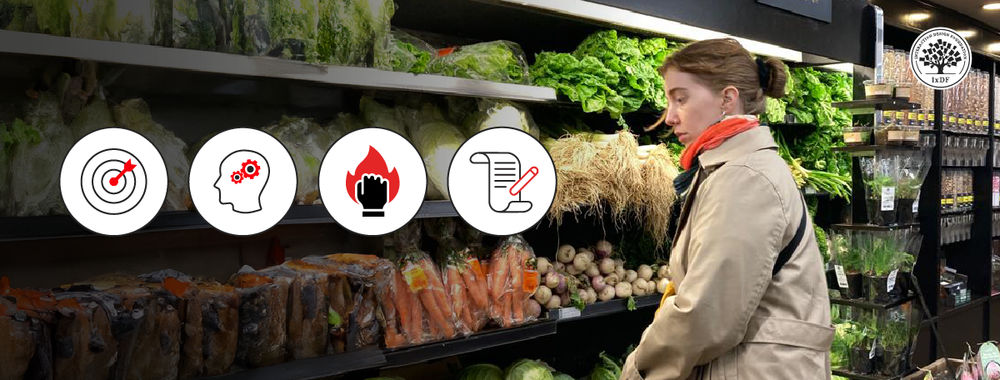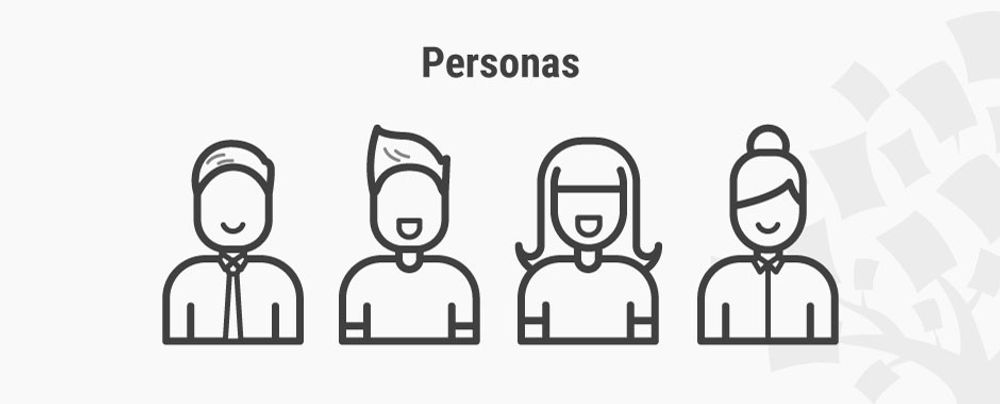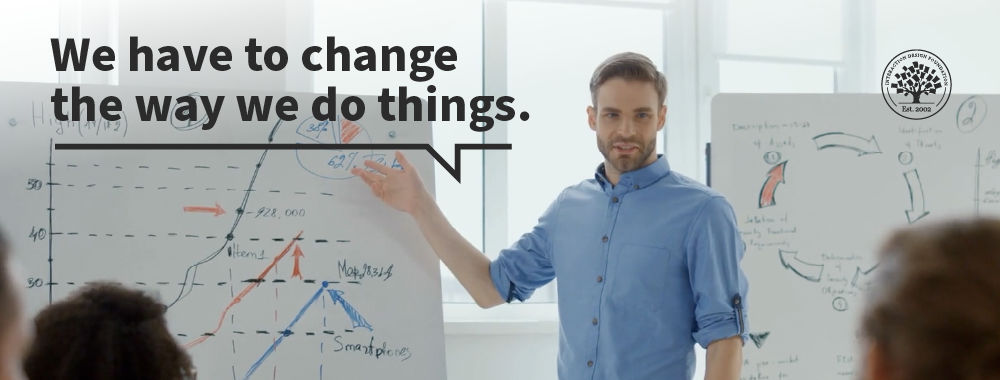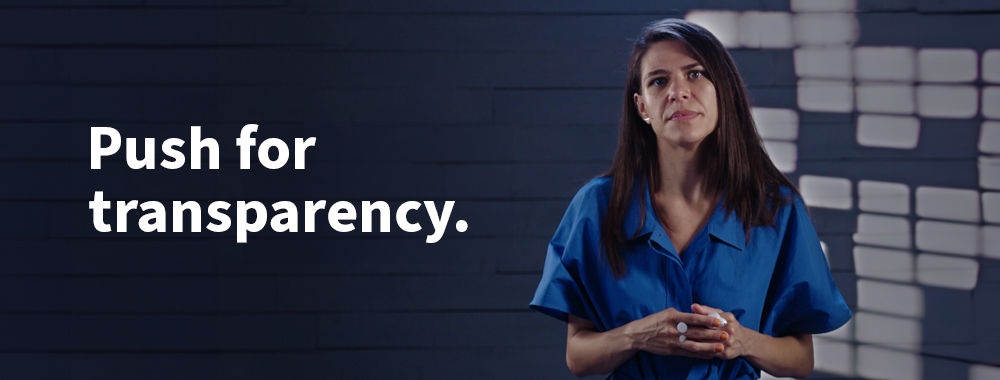Is it irresponsible to become a freelancer, entrepreneur or digital nomad? We want to turn this question around and ask; is it responsible not to pursue your dreams?
Life is uncertain, unsafe and, to some extent, you cannot completely control the most important things in your life: When are you going to die? Will your partner leave you? Will your kids grow up thriving and healthy? You can do your best to choose and form your life as you want it, but life is scary, especially when you start questioning the normal 9-5 lifestyle – when you are dreaming of, planning and trying to build a life, working life, and work-life balance which is better for you.
Is it responsible to risk building your own business? Is it responsible to leave friends and family behind for a while if you choose to work and travel as a digital nomad? Is it responsible to quit your job which gives you a stable income?—And to rent out your apartment or house for a while?
Most likely, you’ll have questions exactly like these if you’ve been wondering about taking the leap into becoming a freelancer, an entrepreneur or digital nomad or otherwise departing from the standard 9-5 life plan.
Table of contents
- Wonderful Dreams and Scary Choices
- Globalization and the Internet Give Us More Freedom and More Choices to Make
- Anxiety is The Dizziness of Freedom
- Freedom to Choose Can Be Too Scary – Are You Feeling Anxiety by Fleeing Choice?
- When You Question the Status Quo, You Question Society’s Deferred Life plan—To which Most People Subscribe
- Do You Want to Destroy the Status Quo?
- Perspectives: Societies and Individuals Running from Anxiety
- Life Sets its Own Limits to Your Possibilities and Your Freedom. Why Restrict Yourself?
- How to Deal with Your Anxiety and Overcome Your Fear and Safety Concerns
- Assignment: 7-step plan to Overcome Your Fears
- The Take Away
- References & Where to Learn More
Wonderful Dreams and Scary Choices
You know the life you have now. Your daily life may not be your ultimate dream life. It may not be anywhere close to the dreams you had when you were a kid and thought about all the great stuff you would be able to do when you grew up. Nevertheless, you are reading this because you have a feeling that your life can be better than it is. You feel you’ve got possibilities to do something more (and better) with your life. Everything in life has a downside to contrast with the upside. The downside to our freedom to choose is the anxiety and fear of making the wrong choices.
 Author/Copyright holder: Chris Marchant. Copyright terms and licence: CC BY 2.0
Author/Copyright holder: Chris Marchant. Copyright terms and licence: CC BY 2.0
You feel anxiety because you have possibilities to choose between—because you are free to choose. Following our dreams involves making some scary choices; there’s beauty and terror involved in going freelance or starting a new business. Face it. Embrace it. And you’ll be fine.
Globalization and the Internet Give Us More Freedom and More Choices to Make
In human history, we have never had so many choices to make as we have in the 21st century: Would you like to do the same thing as your parents? Or, are you aiming to become a User Experience Designer, Interaction Design Professor, or a professional scuba diver? Do you want to be an employee, freelancer or entrepreneur? Do you want to live in lively New York or New Delhi or on a silent tropical Thai beach?—And for how long? Where are you going next, why and with whom? Do you want a partner?—A partner of the same gender as yourself? Do you want 0, 1, 2 or 6 children?
The life choices we have to make can seem overwhelming—and difficult—and even scary. And we may end up feeling a bit (or a lot) insecure. Is it just you? No. Is it just the times we live in? No.
The Danish Philosopher, Søren Kierkegaard (1813–1855), can help you understand what is really going on inside you, your relatives and your friends when you start considering new significant life choices such as starting your own business. And even Søren Kierkegaad had no idea just how many important choices we have to make today as the world has been globalized and moved on—and online— since his day. However, we can still learn to understand and tackle our anxiety with Kierkegaard’s help as the feeling freedom gives us is universal and timeless.
 Author/Copyright holder: NASA Goddard Space Flight Center. Copyright terms and licence: CC BY 2.0
Author/Copyright holder: NASA Goddard Space Flight Center. Copyright terms and licence: CC BY 2.0
In human history, we have never had so many choices to make as we have today. The world is our playground. The life choices we have to make can seem overwhelming—and difficult—and even scary. And we may end up feeling a bit (or a lot) insecure.
Anxiety is The Dizziness of Freedom
You feel anxiety because you have possibilities to choose between—because you are free to choose. You are not free to choose everything, of course. Life sets its own limits, but you don’t have to take on the same job as your parents did as our ancestors did. You have the freedom to choose which particular work niche you prefer, if you want to be an employee or self-employed, and so forth. Important choices of this stature stand before you, and most likely you have felt the creeping and nagging sensation while considering what may be the right choices for you. The Danish Philosopher Søren Kierkegaard describes very precisely why you have this feeling.
“Anxiety is the dizziness of freedom.”
– Søren Kierkegaard, A Simple Psychologically Orienting Deliberation on the Dogmatic Issue of Hereditary Sin
Freedom is something most cultures celebrate and actively seek, but freedom to choose also generates anxiety. “When I behold my possibilities,” Søren Kierkegaard wrote, “I experience that dread which is the dizziness of freedom, and my choice is made in fear and trembling.”
If you don’t have any dreams, possibilities and freedom, you won’t have any anxiety.
“Because it is possible to create — creating one’s self, willing to be one’s self, as well as creating in all the innumerable daily activities (and these are two phases of the same process) — one has anxiety. One would have no anxiety if there were no possibility whatever.”
– Mark Manson, The Most Important Question of Your Life
Daniel Smith, author of Monkey Mind: A Memoir of Anxiety, nails it:
“And what nags me about this is that the source of my anxiety was exactly what Kierkegaard says the source of anxiety is, and what he praised in direct proportion to the volume any person possesses: possibility. The awareness that life is a series of choices any one of which could be either aggrandizing or disastrous. That this happens to be true I have no trouble signing on to. Any who has lived past the age of ten knows that even piddling actions can wind up having big consequences, and that even when you are super-conscious of your behaviors you can't know how things are going to turn out in the short- or the long-run. That's the drama of it all. On the one hand, your very existence means you can and will change things in your life and others. On the other hand, you aren't God, so everything is always going to be drenched in uncertainty and doubt.”
– Daniel Smith, Monkey Mind: A Memoir of Anxiety
Freedom to Choose Can Be Too Scary – Are You Feeling Anxiety by Fleeing Choice?
Why do 90–99 % of people choose to indebt themselves and put restrictions and limits on their free choices?
 Author/Copyright holder: Mish Sukharev. Copyright terms and licence: CC BY 2.0
Author/Copyright holder: Mish Sukharev. Copyright terms and licence: CC BY 2.0
Freedom is a state of mind. But it also takes a lot of active work. Freeing yourself from your cage takes courage, but the rewards can be great. Freelancing and entrepreneurship are scary, thrilling and wonderful at the same time.
Take, for instance, the Interaction Design Foundation founders’, Mads Soegaard and Rikke Friis Dam’s, neighbours—a young couple in the beginning of their 20s who had just finished their college degrees in teaching and computer science. They both just got their first jobs—well-paid jobs in Denmark, that is. After one month, they started shopping for a brand new, big and expensive car...and a bigger apartment—even though they were living in a brand new, big villa with a garden and a perfect location, a location they love, an apartment they appreciate.
The young couple eagerly explain that they will only use their brand new car once every two weeks as their jobs are within walking distance, and that they could, in fact, just continue using their in-law’s car without ever paying for the use of it. When asked why they would want to purchase a new apartment and car, they couldn’t really come up with an answer. They ended up explaining that it would be “kind of nice” to have their own car and an apartment which was much more expensive but only a bit nicer and a shade bigger.
They could spend money on other things instead of a car and a house: the freedom to travel, or to work less or to start a business. It’s possible, of course, that the car and apartment are what they really want, but it seems unlikely—doesn’t it?—as they already have access to a beautiful car and a perfect apartment. Mightn’t they just be retreating from the dizzying array of choices that their freedom offers? It seems so. Are you doing this, too?
Why do humans make themselves slaves of materialism, fear and anxiety? Why do we restrict our freedom more than we have to?
“Too many of us are not living our dreams because we are living our fears.”
― Les Brown, American motivational speaker, author, radio DJ
Many people try to flee anxiety by fleeing choice. Your family and friends are obviously worried about you, particularly when they ask you whether your dream of quitting your current, stable life isn't too risky, unsafe and uncertain. Well-meant questions like “Are you sure you’ll be all right for money?”, “Is that altogether wise?” or “Does this mean you can’t go on a summer holiday?”—such probing and hints of caution are natural, coming from people who are on your side. But perhaps they are also afraid of taking a closer look at the possibility and choices they could make themselves?
 Author/Copyright holder: Juan Lacruz. Copyright terms and licence: CC
Author/Copyright holder: Juan Lacruz. Copyright terms and licence: CC
Why do we human beings make ourselves slaves of materialism, fear and anxiety? Why do we restrict our freedom more than we have to?
When You Question the Status Quo, You Question Society’s Deferred Life plan—To which Most People Subscribe
Once you start questioning your own life and whether you should make new radical choices such as starting your own business or becoming a digital nomad, you may also be starting to question the lives your parents, friends, colleagues and family lead.
It’s likely they will want to advise you to do what is best for you. But it is very important for you to know that your friends and family will most likely be unconsciously motivated to help you stay put and keep your current job. Why?—because when you keep living your current, secure lifestyle like they do theirs, they won’t have to question their own lifestyles and life choices, either.
On the other hand, if you are heading for a new lifestyle as a freelancer, entrepreneur or digital nomad, you will unconsciously question if they have made and are making the right choices in their lives. These are scary and anxiety-provoking questions. How do I want to spend my life? Do I want to work 9-5? Do I want children and my own family? What is the meaning of life? What is my passion? How do I actively want to spend my next hour, today, tomorrow, next week, next month, year, and the rest of my life?
Do You Want to Destroy the Status Quo?
Destroying the status quo can be difficult if the status quo is okay, but human beings have a tendency towards striving for more. Psychologist, entrepreneur and digital nomad Mark Manson describes it in an excellent way:
“Now creating, actualizing one’s possibilities, always involves negative as well as positive aspects. It always involves destroying the status quo, destroying old patterns within oneself, progressively destroying what one has clung to from childhood on, and creating new and original forms and ways of living. If one does not do this, one is refusing to grow, refusing to avail himself of his possibilities; one is shirking his responsibility to himself. Hence refusal to actualize one’s possibilities brings guilt toward one’s self. But creating also means destroying the status quo of one’s environment, breaking the old forms; it means producing something new and original in human relations as well as in cultural forms (e.g., the creativity of the artist). Thus every experience of creativity has its potentiality of aggression or denial toward other persons in one’s environment or established patterns within one’s self. To put the matter figuratively, in every experience of creativity something in the past is killed that something new in the present may be born.”
– Mark Manson, The Most Important Question of Your Life
Perspectives: Societies and Individuals Running from Anxiety
When you understand that freedom to choose generates anxiety and that all important choices are made in tandem with a good mix of anxiety, fear and trembling, it’s easier to understand and explain;
“The perverse-seeming appeal of authoritarian societies—the certainties of a rigid, choice-less society can be very reassuring—and why times of upheaval so often produce extremist leaders and movements: Hitler in Weimar Germany, Father Coughlin in Depression-era America, or Jean-Marie Le Pen in France and Vladimir Putin in Russia today”
– Scott Stossel, My Age of Anxiety: Fear, Hope, Dread, and the Search for Peace of Mind
It also helps explain why so many people stay in a 9-5 job even though they feel they should be doing something else. But running from anxiety, Kierkegaard explained, is a mistake because anxiety is a “school” that teaches people to come to terms with the human condition.
When you feel the anxiety and the dizziness of freedom, you need to understand that staying put is also an active choice. And you always take a risk when choosing to stay where you are and keep doing what you do.
Life Sets its Own Limits to Your Possibilities and Your Freedom. Why Restrict Yourself?
Life sets limits. We don’t like to talk about this fact in the postmodern world. We love to persuade ourselves that we are totally free to choose the life and lifestyle we want. However, we are not at all free individuals, according to philosophers such as Friedrich Nietzsche and Michel Foucault.
Nietzsche has some highly interesting takes on freedom which you should take into account before making important choices. He claims that any given person can only thrive with some specific choices and lifestyles, explaining that it is our human task to dare to try to “become what we are”. Nietzsche would say that we don’t have an endless amount of choices to choose between, as there are only a few choices which are right for us. Not all choices are right for you. Nietzsche wasn’t a full-fledged fatalist, so he doesn't have an easy-to-follow manual on how we can make the right choices.
In his final book, Ecce Homo, How One Becomes What One Is, Nietzsche gives us the advice that we simply have to acknowledge that we as human beings have to take detours to become ourselves. There is no direct way to success—to a thriving business and life. We have to make the choices we believe are right—now. But we can never know if they will be the direct way to our success – our direct way to become what we already are. Kierkegaard adds that only in the future will we understand why exactly we made the choices we did at any given time in our lives. We live in the present, but we don’t understand our choices and their consequences until later on.
If you follow Nietzsche’s and Kierkegaard’s advice, they would suggest that you should dare to make choices, even though you don’t know the outcome, as long as you think that they are right for you.
“To venture causes anxiety, but not to venture is to lose one's self.... And to venture in the highest is precisely to be conscious of one's self.”
– Søren Kierkegaard
 Author/Copyright holder: Jean-David & Anne-Laure. Copyright terms and licence: CC BY-SA 2.0
Author/Copyright holder: Jean-David & Anne-Laure. Copyright terms and licence: CC BY-SA 2.0
If you follow Nietzsche’s and Kierkegaard’s advice, they would suggest that you should dare to make choices—even though you don’t know the outcome—as long as you think that they are right for you. The bronze sculpture is called “Le Penseur” or “The Thinker”, by Auguste Rodin.
How to Deal with Your Anxiety and Overcome Your Fear and Safety Concerns
Step 1: Fear vs. Anxiety
First, you need to know the difference between anxiety and fear. Fear has an object. Take, for example, the fear of not making enough money as a freelancer, not getting high enough scores on an exam, and so forth. Anxiety, on the other hand, has no object and is simply a feeling all human beings encounter whenever they gaze into the abyss of possibilities and freedom.
Step 2: Embrace Anxiety
Embrace and enjoy the creeping feeling of anxiety if you can. Take in the fact that if you did not have this feeling, you would be no more than an animal possessed by its own instincts—an animal which had no significant choices to make, hence no freedom. If you didn't feel anxiety, you would have no freedom—you wouldn’t be human, Kierkegaard said.

Author/Copyright holder: Javier Livas Cantu. Copyright terms and licence: Fair Use
Anxiety comes from deep within the brain, and it’s an automatic reaction. You can’t control it, but you can embrace it and learn to work with it.
You can't master and control anxiety as you cannot control and predict your future. The great big unknown is exciting and scary at the same time. We feel the dizziness of freedom whenever we look into the great chasm of question marks. It’s easy to feel powerless, but what you can do is to convert huge chunks of your anxiety into fear. The good news about fear is that, unlike anxiety, it’s something you can learn to overcome and control.
You should convert whichever parts of your anxiety you can into fear. Why?—because fear has an object. This means that you can understand, handle, and overcome your fear.
Step 3: A Simple Method to Convert Your Anxiety into Fear. Conquering Fear = Defining Fear
What stops many of us from becoming freelancers and entrepreneurs? Fear—we fear what will happen if we quit our jobs and don’t succeed. We fear what will happen if we can’t make enough to cover the mortgage. We fear that our friends and family won’t understand why we’ve decided to go freelance. We worry, and we worry, and we worry, and it stops us from making the break that we’ve always dreamed of.
Fear and worry—which comes from that fear—become a permanent state of procrastination. “I’ll quit next month…” she still says, every month. “I’ll quit when I have another $5,000 in the bank!” he proclaims, although that $5,000 never seems to materialize. And so it goes on…
So, how do we overcome the fear and break out into freelancing?
In his book The 4-Hour Workweek, Timothy Ferriss, an online entrepreneur and successful businessman, offers an insightful way to overcoming anxiety of getting started as a freelancer or entrepreneur by turning anxiety into a concrete fear which you can understand and handle.
It’s really common sense. And common sense is a wonderful thing. Tim suggests that we begin to conquer our fears by defining them. What are you afraid of? Is it not being able to pay the mortgage? Is it disapproval from friends or family?
Write down what your fears are about starting a business. Define them.
Then the next step is simple. Ask yourself: “What is the worst thing that could happen if my fear came true?”
Not being able to pay the mortgage, for example, might mean that you’d have to sell your home and rent. Millions of people rent a home without any undue harm coming to them. It doesn’t mean that you will never own a home again, either. Lots of people have lost a home and then bought another.
In the other example, have you never done anything that aroused disapproval in someone else? Of course you did—and you’re still here, aren’t you? You had no permanent damage.Tim says you want to rank the outcomes of “What’s the worst thing that could happen?” from 1 to 10—where 1 is “nothing of consequence” to 10, “absolutely life changing and un-survivable”. You’ll find that almost every fear, when faced, will rate at a “3” or “4” at most.
Then you want to examine the upside. What’s the best thing that could happen from opening your own business? Again, you rate from 1 to 10, but this time go from 1 = “nothing of consequence” to 10 = “absolutely life changing and positively so”. So, what’s the best thing that could happen? You might decide that it would give you the freedom to travel the world and pursue other interests. It might be that you’d be able to do work you really love. It might be that it could become a multi-million-dollar firm (many freelancers have gone on to form big agencies in the long term). The list goes on… and, in earnest, when you ask that question, the answers are much likelier to be a “9” or a “10”. Of course, if you’re looking for something simpler, you may also be able to be free to work from home, to choose when and where you work, to be able to take control of your time, etc.—Not every freedom has to be a huge undertaking.
When you compare the two outcomes, doesn’t it make sense to let go of your fear?
Assignment: 7-step plan to Overcome Your Fears
If you’re still not convinced, Tim Ferriss also offers a 7-step plan for conquering your fears. Please go ahead and define your fears using Tim’s excellent plan and questions:
Define that fear, and find the worst possible outcome.
Then ask what could you do to recover from that outcome as fast as possible? If you can’t pay the mortgage, you could always find another job, right?
What are the benefits of the positive scenario? How likely is it that you could achieve that? Have people who are less capable or less clever than you are pulled off a positive outcome in the past? (Of course they have.)
What would you do if you got fired without severance pay today? Now go back and revisit steps 1 to 3.
What is it that you most fear? Is it something you can tackle today? Then tackle it. By and large, we tend to put off what we most fear. Once we take action, we realize it’s not such a big deal, and we move on.
What’s the impact of not taking action on you in terms of finances, emotions, physicality, spirituality, etc.? If you’re not having fun doing what you’re doing now, is it likely to get more fun if you stick with it for another five years? How will that make you feel? If your work life doesn’t seem meaningful now, do you really think it will likely get more meaningful if you keep your current job?
What’s holding you back now? Unless you can define something that will completely end your world, the answer is fear. We’re all afraid at times, but the only way to conquer fear is to take action. So take it.

Use Tim Ferriss’ 7-point plan, and you’ll be able to handle any fear of freelancing or starting your own business.
The Take Away
You can't master and control anxiety as you cannot control and predict your future. The great big unknown is exciting and scary at the same time. We feel the dizziness of freedom when we ponder how high we can go with it, perhaps even powerless. But what you can do is to convert huge chunks of your anxiety into fear. The good news is, you can learn to overcome and control fear.
Fear is a limiting emotion, and most of the time it’s not a rational emotion. When you examine the “worst-case scenario” and compare it to the “best-case scenario”, you will likely see that the downside is far more limited than the upside in all but the most unusual circumstances.
If you really want it, you can’t wait forever to become a freelancer or entrepreneur. Before you know it, you’ll be retired and looking back on a lifetime of regret that you never gave yourself a chance to prove your mettle. Accept and embrace your anxiety, face your fears head on, and take action.
References & Where to Learn More
Hero Image: Author/Copyright holder: *USB*. Copyright terms and licence: CC BY-SA 2.0
Tim Ferriss, The 4-Hour Workweek, Chapter 3 – Dodging Bullets, 2007
Daniel Smith, The Monkey Mind: A memoir of anxiety, 2012
Søren Kierkergaard, The Concept of Anxiety: A Simple Psychologically Orienting Deliberation on the Dogmatic Issue of Hereditary Sin, 1844
Mark Manson, The Most Important Question of Your Life, 2013
Scott Stossel, My Age of Anxiety: Fear, Hope, Dread, and the Search for Peace of Mind, 2014
Friedrich Nietzsche, Ecce Homo, How One Becomes What One Is, 1908 (written in 1888)
